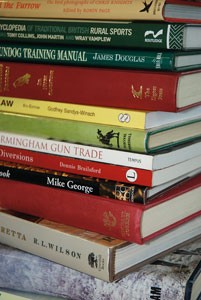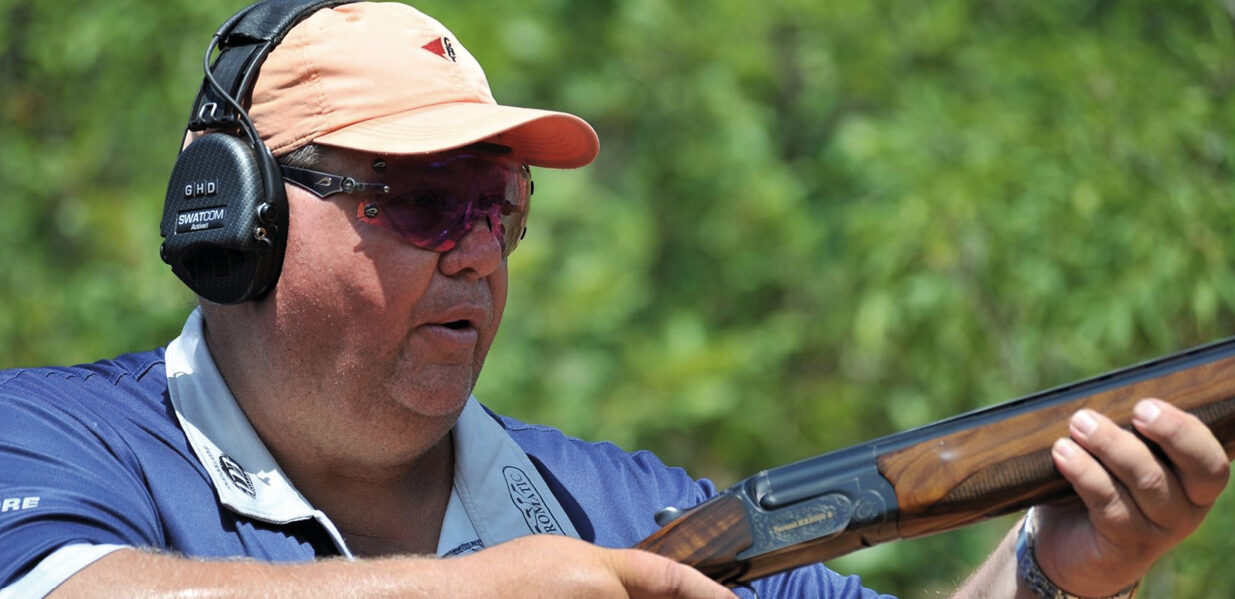Hunting for bargains on eBay

I have to confess that when it comes to modern day technology I am not the sharpest pencil in the box. I do have a fairly ancient mobile phone (not quite the brick size of the early-1990s) and I am quite capable of making a call and even receiving one, but texting is a total mystery and one I have no wish to explore. My wife, on the other hand (why are women always so more clued up to this sort of thing?), can happily sit watching TV while her thumbs flicker over the tiny dials on her mobile sending her thoughts into the ether.
However, by earnest application linked to necessity and with the support of a local computer whizz-kid, I have managed not only to use my computer with a reasonable degree of efficiency but in the past few years have become an eBay addict, concentrating largely on sporting books and my other interest, works by 18th-century authors.
Buying (I have not yet advanced to selling on eBay) is, I have discovered, intensely exciting. As sellers know to their advantage, when two or more bidders become rivals for a gem, their sense of competition and determination can send the price of a sought-after item rocketing sky-high. This is where one has to make certain ground rules and stick by them or face the bank managers wrath.
If you are a collector of old books on fieldsports and have a reasonable knowledge of what is on the market, perhaps through second-hand dealers and their catalogues, then you will have a head start. Brand-new books on country sports and reprints can readily be found by searching under fieldsports books, but if you click on antique and collectable books you are likely to discover many bargains.
Here there are literally hundreds of books covering every conceivable topic under the sun. The majority are worthless, though pearls do appear from time to time. Sellers, who are often dealers, normally provide a full and honest account of any book they are selling. One should be able to check the date of publication, the edition, its size and its condition. A worthwhile seller will also describe each and every flaw in a book, noting any foxing, stains, tears, damage to spine, lost plates, bumping to cover edges and so on. From this one can readily obtain a very good idea of the book and its condition. Furthermore, there should be a series of photographs illustrating its exterior, inside pages and plates, if any.
In the past four years or so I have bought some gems on eBay and, more than once, have picked up a turkey when I expected a golden goose. For £20 I picked up a pristine copy of The Hunting Grounds of the Old World by The Old Shekarry (1868). I bought Modern Sporting Gunnery by Henry Sharp (1906) for £10 and No Sportsman at All by J. K. Stanford (1948) for £5. I found a fine third impression of Record Bags and Shooting Records by Hugh S. Gladstone (1923), with a bookplate of the renowned naturalist Richard Meinertzhagen, for less than £30.
I have been caught out once or twice, not so much with sporting books, but those of the 18th-century, which have not fully fulfilled their promise. This has been largely because, in haste to make sure I obtained what I thought to be a bargain, I failed fully to read the sellers description.
One has to be patient and allow time to search through each days offeringsl. Collectable books tend to appear in the evening, usually between 6pm and 10pm, but fieldsports books can come up for auction at any time. Dont be discouraged if your searches prove blank, but if you can allow, say, an hour each evening to discover what items are for sale the following day, you will eventually pick up bargains.
You will have to register as a buyer, picking your own password for quick entry when you log on. You will be offered the choice of paying for an item by PayPal, which ensures a swift delivery and is alleged to be secure, or by cheque or card. So far, I havent had any problems and have invariably received a book within a few days.
There is, of course, a technique to buying and this is where it becomes really exciting. The majority of books will have a low initial price, a technique used to lure in the punter, but dont believe that you are necessarily going to acquire an £80-value book for a fiver. Once you have chosen a book you want, set a price limit on it and never exceed it (well not too often). The art of success is to wait until the last 10 minutes before the sale ends and then to log in, but not put in your price until the last few minutes a practice known online as sniping. By then you will have seen what sort of price the book is likely to make. If you are determined to have it, put in a high bid within your budget but well above the latest shown and in the very last minute. Keep a close eye on it and be ready to go higher if your bid is exceeded. Its all very subtle, very last minute and can be incredibly exciting. Nothing is more satisfying than to see a message flash up to say that you are the successful bidder.
Good luck and happy bidding!








